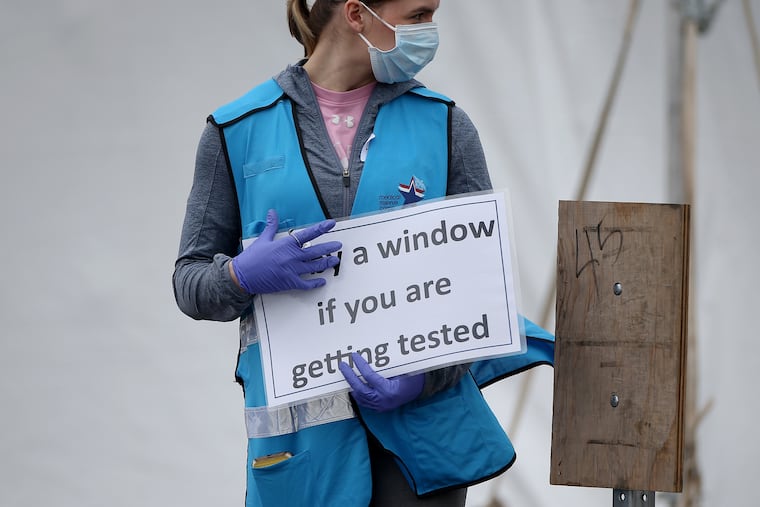Dear medical students, your residents miss you during the coronavirus crisis | Opinion
Medical school administrators made the difficult decision to pull students from clinical rotations. We didn't realize how essential they are.

Just weeks ago, our medical team consisted of an attending physician, us residents, and the medical students. In the midst of the COVID-19 pandemic, everything changed. Health systems around the country eliminated all nonessential staff from the workplace to limit exposures and preserve dwindling supplies of personal protective equipment. Medical school administrators made the difficult decision to pull students from clinical rotations.
» READ MORE: Should medical students be allowed to work in hospitals during coronavirus? | Pro/Con
Students were devastated as clerkship rotations, sub-internships, and electives were stripped away. If we were in their shoes, we would have been devastated, too.
Medical students worked hard for the opportunity to contribute to patient care. Now a sense of uncertainty looms. When will they be able to return to the hospital? When will they be able to take board exams? How will they complete all necessary requirements to graduate in time? Perhaps the most distressing question: Does this mean we do not think they are essential to patient care?
We are writing to tell medical students that we know they are essential. Their absence is noticeable. Morning rounds are work-focused, with less emphasis on teaching, a likely consequence of their departure. We miss the questions they would ask us that would make us stop and think of the “big picture” of a disease or treatment, rather than just the box-checking of tasks we have to do for each patient. We miss the vital personal details they give us about patients and their families, who they would get to know so well as they followed them throughout their admission.
» HELP US REPORT: Are you a health-care worker, medical provider, government worker, patient, frontline worker, or other expert? We want to hear from you.
Gone are the “five-minute presentations,” where they would research a topic the night before and give a short, evidence-based talk that helped the team better understand our patient. Patients and families are begging for more frequent updates in this busy time, and we, as residents, often overlooked the role of medical students in this simple yet crucial task. Now, with students absent, it is even more apparent how helpful they were to the medical team, and how appreciative families were to have them as an advocate. Enthusiasm among residents tends to waver at this time of year, and as COVID-19 tears through our country, many of us are going to work with feelings of fear or uncertainty.
Up until a few weeks ago, the eagerness and fresh perspective of medical students always helped reinvigorate us. We found joy in teaching, learning, and working alongside them. We are impacted by their absence, too.
» READ MORE: Front line workers open up about how coronavirus has impacted them
Against all odds, medical students have found ways to continue supporting patients and medical staff. Groups are collecting personal protective equipment from non-health-care organizations to help hospitals who are in short supply of necessary gear. Many are offering to buy groceries for residents, run errands for them, or help take care of their pets. Another subset of students is answering COVID-19 hotlines, helping individuals determine whether they are safe to stay at home or if they need to seek medical attention. Some are finding ways to help vulnerable populations through access to medical care; food collection and distribution; and financial, legal, and social support. And some even opted to graduate early to join the frontlines in our most affected cities. These are just some of the many impressive contributions medical students are making to help care for patients while still adhering to social distancing guidelines.
Medical students, we want to make sure you know that even if you are no longer in the hospital, you are essential. Keep finding innovative ways to directly and indirectly help patients. We are humbled and honored to know that one day, we will be your colleagues.
Yoshi Rothman and Vidya Viswanathan are resident physicians in Philadelphia.